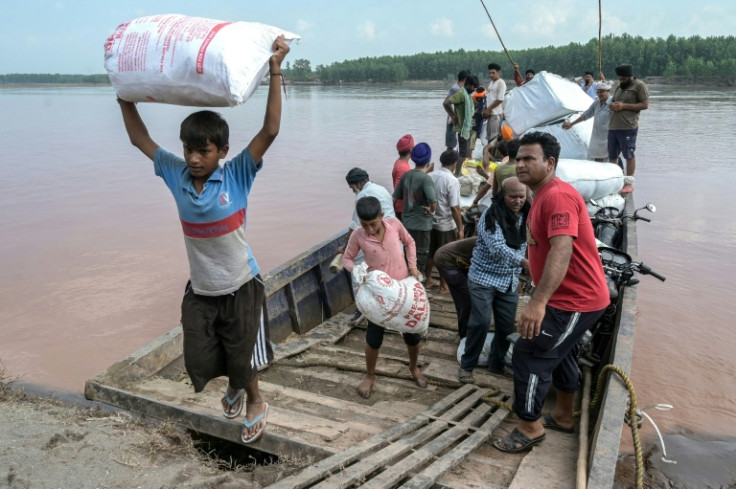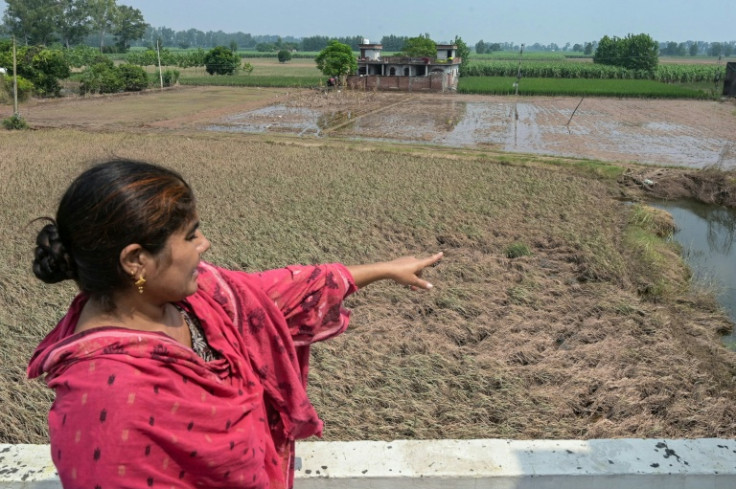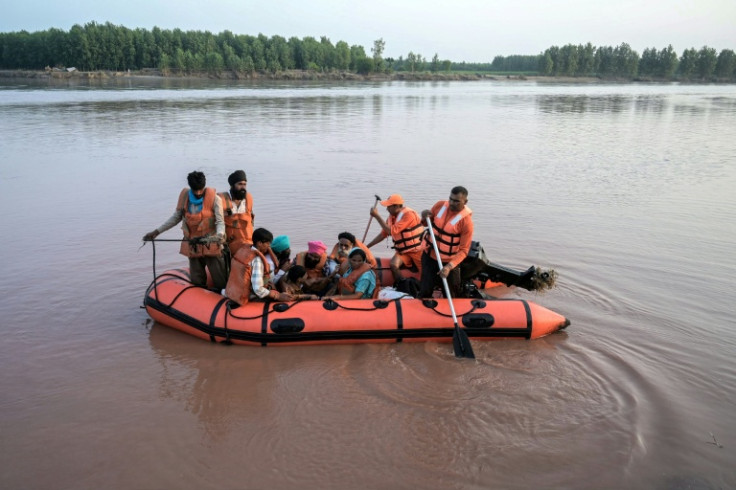India's Breadbasket Under Water: Millions Displaced as Punjab Faces Worst Floods in Decades
Record monsoon rains devastate Punjab, drowning villages and farmland, leaving families homeless and food security at risk.

The floods came without mercy. One night in late August, the waters of the Ravi river surged into the village of Toor in Punjab, India's breadbasket. Within minutes, they rose to 10 feet, swallowing homes, fields, and animals.
'We were all on rooftops,' recalled farm worker Surjan Lal. 'We could do nothing as the water carried away everything from our animals and beds.'
Toor was marooned for nearly a week, and the story is the same across much of Punjab. More than 1,400 villages across 13 districts are submerged, affecting over 3.5 million people.
At least 55 have lost their lives. Entire communities have been forced to abandon their homes, relying on hastily built relief camps for food, shelter, and safety.
Fields Turned to Marshland
Punjab is often called India's granary. Its rice and wheat feed hundreds of millions, and its farmers are regarded as the backbone of the country's food security.
Now, vast stretches of that farmland are brown, wilted and stinking of rot.
According to Yahoo News, the floods have swallowed fields almost the size of London and New York combined.
'The crops have been destroyed and ruined,' India's agriculture minister admitted during a visit. The state's chief minister called it 'one of the worst flood disasters in decades.'
For farmers like 70-year-old Balkar Singh, the devastation is personal. His paddy fields near Amritsar are now marshland, and cracks run through the walls of his home.
'The last time we saw such an all-consuming flood was in 1988,' he said. 'The water on my farm is still knee-deep. I don't know what the future holds for us.'

Families Uprooted
Over 2.5 million people have been forced from their homes. More than 100 relief camps have been set up across Punjab, where families sleep on mats, queue for water, and wait for news about their villages.
Health camps treated more than 51,000 people in just one day, as authorities scrambled to prevent outbreaks of waterborne disease.
For those without land, survival is even more precarious. Fifty-year-old labourer Mandeep Kaur saw her house swept away.
Now she lives under a tarpaulin sheet in a courtyard, constantly wary of snakes that slither across the damp ground. 'The uncertainty is unbearable,' she said softly.
In Lassia, the last Indian village before the Pakistan border, farmer Rakesh Kumar lost both his owned and leased fields.
'All my investment has just gone down the drain,' he said. He worries he won't be able to sow wheat, the winter staple, in time. 'All the muck has to dry first, and only then can machines clear the silt.'

National and Global Ripples
Punjab is India's largest supplier of rice and wheat to the national food security programme, which provides subsidised grain to more than 800 million people.
Analysts say domestic supplies are secure thanks to buffer stocks, but exports of premium basmati rice are expected to plummet, driving up global prices.
'The main effect will be on basmati rice production, prices and exports,' said Avinash Kishore of the International Food Policy Research Institute.
With US tariffs already squeezing India's basmati trade, the floods could worsen the economic pressure on farmers.
To add to the hardship, Punjab had opted out of the federal crop insurance scheme, claiming it was low-risk thanks to its irrigation network. Now, thousands of farmers have no financial safety net.
Climate and the Future
Punjab saw rainfall nearly two-thirds above average in August, the national weather department reported.
Floods and landslides are common during South Asia's monsoon season, but scientists warn climate change is making them more frequent and more destructive, especially when coupled with poor planning and weak infrastructure.
Prime Minister Narendra Modi has announced a relief package of about $180 million, but few believe it will be enough. For many, the road to recovery will take years, not months.
Standing by his ruined fields, Balkar Singh reflected on the long fight ahead: 'Back in 1988 we rebuilt slowly. This time, with so much lost, I don't know if we can.'
© Copyright IBTimes 2025. All rights reserved.





















